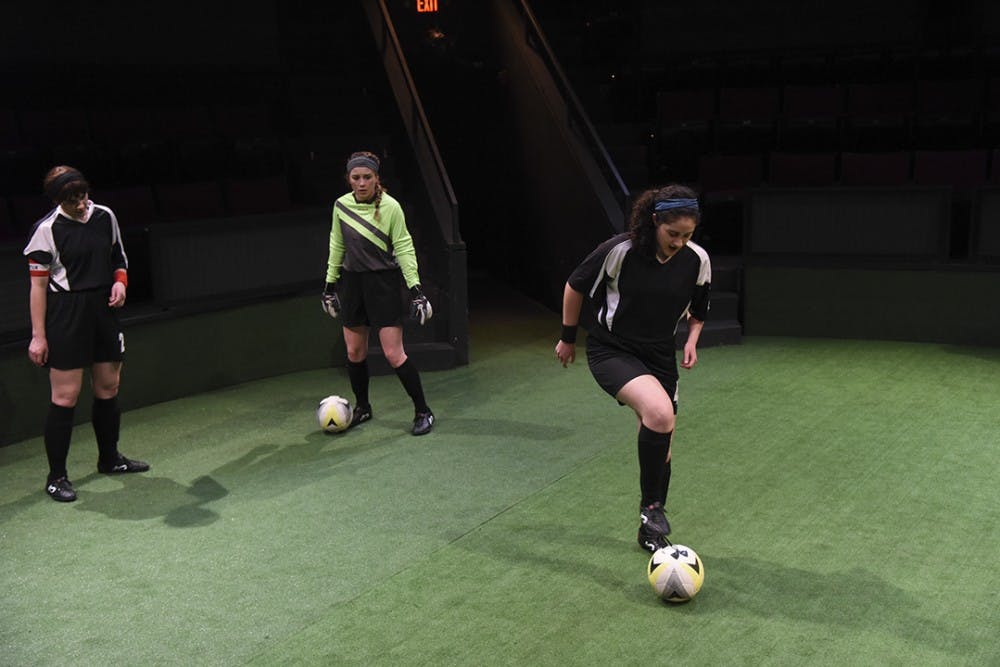Sports might not be the first topic that comes to mind when thinking about a night at the theater, but USC's Department of Theatre and Dance’s current production, “The Wolves,” explores the typical struggles of high school through a women’s club soccer team.
The historic Longstreet Theatre is transformed into a mini soccer stadium for the play. Since the characters are on an elite soccer team, the actors had to learn basic soccer skills to play their parts.
USC’s women’s soccer coach Shelley Smith and former USC soccer player Anna Conklin trained the actors. For some of the actors, it was a first-time experience.
“A lot of us came into it with this idea that you go and you just kick the ball, but there’s actually specific technique,” Amber Coulter said.
The fourth-year theater student said the specific movements became muscle memory and helped her learn the lines.
Lindsay Rae Taylor, director of "The Wolves" and third-year MFA student, described the soccer movements as an "intricate chaotic dance" once they are meshed with theatrical elements.
No matter the high school, the same issues often persist – comparison, rejection and the desire to fit in. The characters in “The Wolves” embody certain struggles that they confront throughout the play.
Taylor said she didn’t want to give away any spoilers. She said it’s hard to talk about the characters without explaining the whole story.
“It’s like this little gift box of surprises that kind of filter out through,” Taylor said.
Taylor said certain issues are revealed to the characters and audience at the same time. Even those in the audience who are far removed from high school will see a glimpse of their adolescence, Taylor said.
"You can recognize all of these characters," Taylor said. "It’s every girl that you ever wanted to be, every girl that you despised, every girl that you were afraid of."
The characters are identified by their numbers, their names remain anonymous.
Coulter plays character number 14 and said the women are portrayed as hardcore instead of fragile or weak.
“We’re talking about some really serious things, and we’re not seen as the damsel in distress or the princess or the sex icon,” Coulter said.
Susan Swavely, second-year English and theater student and character number 25, said the characters deal with eating disorders, body image and social status. All are issues that can be prevalent even after high school.
"Even when they have moments of weakness, there’s strength in that," Swavely said.
The characters are battling individual issues, but they help each other through it just like a team does. Swavely said women are especially good at working together as a unit.
“I think you can work with other people and understand other people without losing pieces of who you are,” Swavely said.
The dialogue is another unique component of this production. The conversations mimic the way soccer players would talk during warmups. There are different conversations happening at the same time – known as overlapping dialogue – which makes the dialogue less structured than a typical play.
Taylor said there is no way to hear every single bit of dialogue and audience members will have a different experience depending on where they sit.
Sports and theater might have more in common than what it looks like on the outside. Taylor often uses sports as a metaphor when teaching theater classes.
“We’re trying to come together as an ensemble to tell a story, they’re trying to come together as a team to score a goal and win a game,” Taylor said.
“The Wolves” will be performed several times through March 2 at Longstreet Theatre.

